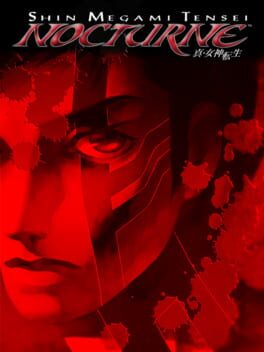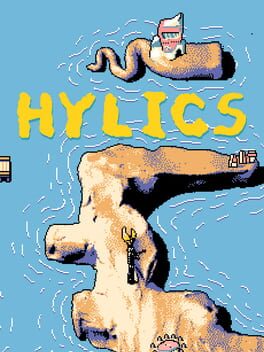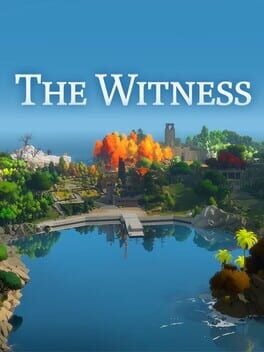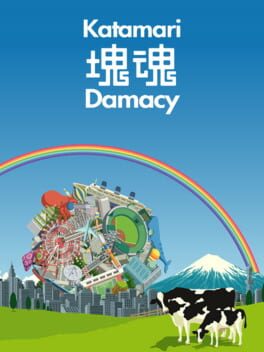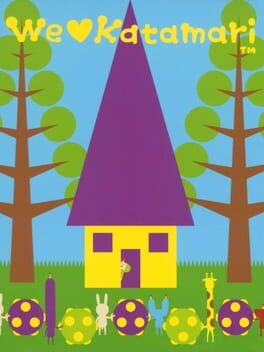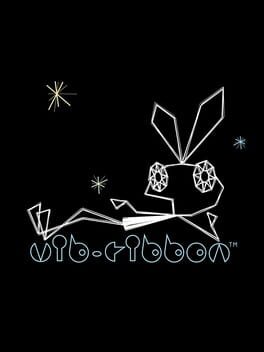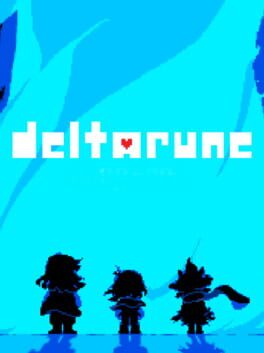oneiromantic
It would take me an unreasonable amount of time to explain all of the reasons I love this game, so I won't even try to do so for the time being. The long and short of it is that I see it as this sort of theoretical maximum amount of purpose you can wring out of modernist game design. The basic concept of the story is clearly informed by the need to Make A Shin Megami Tensei Game, ie it must 1) be conducive to brutally difficult boss fights, 2) be highly allegorical and religious, 3) be exceedingly dark, and 4) contain at least 3 philosophically distinct story routes.
This boxes the game in to some extent, but beyond the basics it sets out the game becomes this genuinely insane story pulling together Mahayana sutras and the book of Job into this profoundly depressing psychological challenge addressing a unique range of topics (themes that jump out to me personally include fascism, sexuality, the need for metanarratives, and powerlessness). Since these ideas were already set up to work within traditional game design, you get some of the most playable JRPG battles I've ever seen and some of the tightest balance between those and the dungeon crawling out there to totally reinforce it the whole way through. The boss fights in particular are a highlight, with each one having some immediately interesting strategy they run on you which you can only get past by keeping your wits about you.
It's a slick game with writing better than most novels I've read, cutscenes more stylish and expressive than many movies I've seen, and design more meticulously balanced than essentially anything else in the medium. On a meta level, it also speaks to the limits of the SMT franchise, the requirements I listed out earlier in this review of being "the next Shin Megami Tensei game". It fundamentally tries to show the player that these can only go so far, even seeming to tacitly encourage them to want to essentially destroy them. However, even in that ending, the game ultimately puts its faith back into it. It's like when I'm playing this game I'm hearing rumblings of something which would finally make me less than embarrassed to admit my love of games, that I might live to see a game which is self-aware enough to deconstruct its own mechanics and build them up into something greater than the sum of its parts. Nocturne stops just barely shy of this; it's an anticipation of a masterpiece that I hope to play someday.
This boxes the game in to some extent, but beyond the basics it sets out the game becomes this genuinely insane story pulling together Mahayana sutras and the book of Job into this profoundly depressing psychological challenge addressing a unique range of topics (themes that jump out to me personally include fascism, sexuality, the need for metanarratives, and powerlessness). Since these ideas were already set up to work within traditional game design, you get some of the most playable JRPG battles I've ever seen and some of the tightest balance between those and the dungeon crawling out there to totally reinforce it the whole way through. The boss fights in particular are a highlight, with each one having some immediately interesting strategy they run on you which you can only get past by keeping your wits about you.
It's a slick game with writing better than most novels I've read, cutscenes more stylish and expressive than many movies I've seen, and design more meticulously balanced than essentially anything else in the medium. On a meta level, it also speaks to the limits of the SMT franchise, the requirements I listed out earlier in this review of being "the next Shin Megami Tensei game". It fundamentally tries to show the player that these can only go so far, even seeming to tacitly encourage them to want to essentially destroy them. However, even in that ending, the game ultimately puts its faith back into it. It's like when I'm playing this game I'm hearing rumblings of something which would finally make me less than embarrassed to admit my love of games, that I might live to see a game which is self-aware enough to deconstruct its own mechanics and build them up into something greater than the sum of its parts. Nocturne stops just barely shy of this; it's an anticipation of a masterpiece that I hope to play someday.
2015
2016
Jonathan Blow as a person notwithstanding, this game's pretty solid. It's not insanely dense or anything, but it's a nice change of pace from games in general. I like the quiet atmosphere and slow pacing, I like the nearly-pointless philosophical musings scattered around, I love The Moment in it which would be criminal to spoil.
Its story is minimal, even debatably nonexistent, but it's certainly a compelling experience provided you're not one to get bored to death by it. Personally, I like the wandering around and the scribbling solutions into inscrutable notes, the little obsession the game can breed into first-time players. It's just pretty unique.
Its story is minimal, even debatably nonexistent, but it's certainly a compelling experience provided you're not one to get bored to death by it. Personally, I like the wandering around and the scribbling solutions into inscrutable notes, the little obsession the game can breed into first-time players. It's just pretty unique.
2004
Maybe the only good love story I've ever played. It's also more directly a game about Big Sticky Balls and cheesy j-pop so it's kinda hard to express this opinion but I swear it's actually got something or other going on beyond the surface. I enjoy the movement and very quintessentially "PS2ish" interpretation of early 2000s Japan. Many of the actual level designs feel like they take these environments and just throw in a nearly immersion-breaking amount of garbage and litter so that the game is playable, but yknow I can forgive that much. It's probably the happiest game I've ever played, for whatever that's worth.
2005
Genuinely astonishing how much more tonally distant this game is compared to its predecessor. I really feel unwelcome while playing the whole thing, even the quote-unquote "improved" design over the original makes it feel that much more Mechanical. The whole thing's a wild spectacle of pointing out all of the ways in which Katamari Damacy speaks for itself and that any proper sequel would just disrupt its creative integrity. I can't think of a single other video game that qualifies as much as a middle finger pointed towards its publisher as this is directed towards Namco. A one-of-a-kind, fourth wall-breaking oddity. Godspeed, Keita Takahashi.
2018
I once streamed myself playing this game over discord to my closest friend and rambled about how much I appreciate the level designs and movements systems and how those emphasize the themes of the story and he just kept telling me about how he thought the hamfisted personification of the protagonist's inner demons is cute and how "he could never get through this" and if that says anything about the game it's that you can't possibly understand its impact without playing it for yourself
2016
1999
I've got some qualms with its level generation algorithm, which sounds like the nerdiest possible criticism to make of any video game but when something is as minimalistic as this, it being so reductive when it comes to why people listen to music just makes it come off as a little bit stupid. I like it as a celebration of music, this idea of a rhythm game about the feeling of listening to all of the weird stuff that you probably already love.
I don't know how much more memory a more sophisticated algorithm would take up which might forbid it from running on the psx, but since they're already fourier transforming the audio data to read out pitches it shouldn't be too much of a stretch to measure ratios between frequencies to get some sense of harmony, or use some stripped-back version of multi-feature beat tracking (https://www.academia.edu/13252036/Multi_Feature_Beat_Tracking) to do... literally anything regarding rhythm at all. Like obviously I may be asking too much of the hardware but I do feel a need to point out that this game doesn't go as far with its concept as it theoretically could.
I like the game as a statement, and I'd dig something modern that goes with the same idea. Audiosurf tries, I guess, but is actually even less sophisticated than this game in that it does nothing regarding the pitch of the songs and instead only generates obstacles in relation to the volume of tracks. As it stands, though, the game leaves something to be desired.
I don't know how much more memory a more sophisticated algorithm would take up which might forbid it from running on the psx, but since they're already fourier transforming the audio data to read out pitches it shouldn't be too much of a stretch to measure ratios between frequencies to get some sense of harmony, or use some stripped-back version of multi-feature beat tracking (https://www.academia.edu/13252036/Multi_Feature_Beat_Tracking) to do... literally anything regarding rhythm at all. Like obviously I may be asking too much of the hardware but I do feel a need to point out that this game doesn't go as far with its concept as it theoretically could.
I like the game as a statement, and I'd dig something modern that goes with the same idea. Audiosurf tries, I guess, but is actually even less sophisticated than this game in that it does nothing regarding the pitch of the songs and instead only generates obstacles in relation to the volume of tracks. As it stands, though, the game leaves something to be desired.
The best Zelda game in that it totally problematizes everything about the franchise and then some. I love the idea of using Link as a hero who ultimately has to save himself above any of the citizens if it came down to it, or the eeriness of your sidequests canonically being undone for the actual ending of the game, etc. The game's brokenness and repurposing of Ocarina of Time assets make it this one-of-a-kind experience that doesn't 100% work if you haven't played at least A Link to the Past and Ocarina of Time prior to it, but the sheer dread this game can instill in a person makes the boring formalities of those games suddenly worthwhile. Apparently everyone who worked on this game thinks it sucks or something but idk dude I think about it frequently
It's, like, acceptable? The story is utterly bloodless and at that is dead on arrival with its lukewarm delivery. The dungeons are presented in a unique way and do a good job of fully taking advantage of a 3D space. Z-targeting is a historically significant innovation in the medium but doesn't necessarily elevate the game above any which lifted this mechanic from it. The combat feels limp and the boss fights feel insulting to me as a player (which makes sense, because they have likely been designed with literal children in mind). I would say it's not worth playing, but I appreciate that it exists because that is a pretext for Majora's Mask existing, which is a genuinely interesting game.
The pixel art is rad and it's certainly more of an actual video game than Zelda 1 in that you can get through the whole thing without a guide. It's the most fluid the combat in the series ever got, though the later follow-up/love letter to it in the form of A Link Between Worlds has, yknow, something more resembling a coherent story on top of having more immediately interesting dungeons and some fun extra gimmicks. This one's still got that Sweet top-down combat on it, though.
2004
2017
2015
It's essentially impossible to remove Undertale from the discourse surrounding the game and how that's changed over the years, so forming a coherent opinion about it and explaining that opinion in a reasonable word count is essentially impossible. However, at the risk of sounding like an unreasonable idiot, I've gotta say, Undertale is pretty alright.
I like the basic ideas for its systems to chat with enemies, but that it falls pretty flat in implementing them. You essentially just pick one thing to say/do to any given enemy type and survive the following bullet hell section. It just doesn't really feel like conversation so much as the surrounding menu text is telling me that I'm definitely talking to these creatures. Furthermore, the game is almost absurdly binary in its morality. Killing one enemy immediately puts you onto the neutral route, for which numerous characters will talk about the people you've killed in the plural. This is powerful in its own right, but when it comes to making any sort of statement about violence in and of itself I feel like some form of nuance across the neutral ending (ie, having multiple "neutral" routes) is sorely missed.
All of that being said, Toby Fox sure knows how to pace some bullet hell sections. Especially with the boss fights you get this really nice window into the internal lives of these characters as expressed by how they fight. Even though they're mostly abstract they really do hit pretty hard (emotionally, I mean), the Mettaton fight in particular standing out in my memory as being a very richly felt section of the game. The writing can occasionally be very of its time in a bad way--actually, fuck my tonal consistency; sometimes the dialogue is just kinda cringe--but the overarching narrative is satisfying and while the more meta stuff got shamelessly ripped off by numerous bad games in its wake, Undertale itself remains remarkably restrained in its use of the trope. Also, doing that Asgore fight during the pacifist run? Man, it's raw.
Sorry if I'm being a little unfocused: like I said, it's a bit of a Discourse-y game and some things become a bit obligatory to address. My bottom line is that the game comes across as a bit gimmicky, but when you can get past that it begins to show touches of subtlety that I can really respect more and more as time goes on. That said, the game in general is bogged down at least a little bit by the rest.
I like the basic ideas for its systems to chat with enemies, but that it falls pretty flat in implementing them. You essentially just pick one thing to say/do to any given enemy type and survive the following bullet hell section. It just doesn't really feel like conversation so much as the surrounding menu text is telling me that I'm definitely talking to these creatures. Furthermore, the game is almost absurdly binary in its morality. Killing one enemy immediately puts you onto the neutral route, for which numerous characters will talk about the people you've killed in the plural. This is powerful in its own right, but when it comes to making any sort of statement about violence in and of itself I feel like some form of nuance across the neutral ending (ie, having multiple "neutral" routes) is sorely missed.
All of that being said, Toby Fox sure knows how to pace some bullet hell sections. Especially with the boss fights you get this really nice window into the internal lives of these characters as expressed by how they fight. Even though they're mostly abstract they really do hit pretty hard (emotionally, I mean), the Mettaton fight in particular standing out in my memory as being a very richly felt section of the game. The writing can occasionally be very of its time in a bad way--actually, fuck my tonal consistency; sometimes the dialogue is just kinda cringe--but the overarching narrative is satisfying and while the more meta stuff got shamelessly ripped off by numerous bad games in its wake, Undertale itself remains remarkably restrained in its use of the trope. Also, doing that Asgore fight during the pacifist run? Man, it's raw.
Sorry if I'm being a little unfocused: like I said, it's a bit of a Discourse-y game and some things become a bit obligatory to address. My bottom line is that the game comes across as a bit gimmicky, but when you can get past that it begins to show touches of subtlety that I can really respect more and more as time goes on. That said, the game in general is bogged down at least a little bit by the rest.
TBD
If and when this game gets finished, it looks like it's going to be Wild. Judging by these first two chapters, it's even more of a video game about other video games than Undertale was, exchanging that game's fetish for expectation subversion for this sort of repeated denial of fanservice.
Some immediately interesting ideas are being developed, especially in chapter 2. A primary focus is the lack of choice in life, with some fun little solipsist undertones about the game's characters being stuck acting out the story itself. Even more interesting is the way Toby Fox is exploring the division between the player and the player character. In particular there's some optional content that I dare not spoil which really deeply unsettles with how it recontextualizes an NPC in the same light you might otherwise see the player character.
There's just a lot of strange storytelling feats being pulled off already, is my point. I'm unspeakably excited to see where the rest of this goes so that I can repeatedly rewrite this review with successively higher scores.
Some immediately interesting ideas are being developed, especially in chapter 2. A primary focus is the lack of choice in life, with some fun little solipsist undertones about the game's characters being stuck acting out the story itself. Even more interesting is the way Toby Fox is exploring the division between the player and the player character. In particular there's some optional content that I dare not spoil which really deeply unsettles with how it recontextualizes an NPC in the same light you might otherwise see the player character.
There's just a lot of strange storytelling feats being pulled off already, is my point. I'm unspeakably excited to see where the rest of this goes so that I can repeatedly rewrite this review with successively higher scores.
